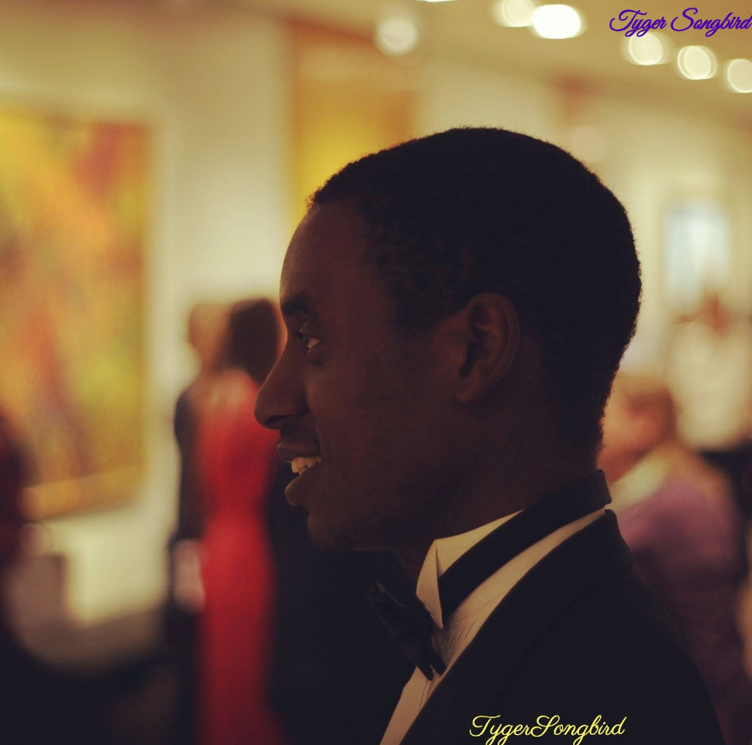
My life story is interlaced with religion. I grew up in the church. My late grandmother was a deaconess. My mother sang in the church choir. My brother is currently a pastor.
I also grew up in the Bible Belt, where you can’t go one intersection without running into a church. The church has been a major influence on my life. Church and purity culture are things I am well-versed in.
Related:
It’s time to stop joking and start taking asexuality seriously
Many people treat asexuality, in general, the same way they do bisexuality — like it’s just a phase, or a joke, or some sort of character flaw.
Growing up, there was a movement called True Love Waits, where Christian teens pledged to save themselves for their future spouses. There were these purity balls, formal dance events where Christian kids pledged to stay “sexually pure,” wearing rings that symbolized their promise to stay virgins until the wedding day.
Dive deeper every day
Join our newsletter for thought-provoking commentary that goes beyond the surface of LGBTQ+ issues
I pledged likewise.
When I was a freshman in high school, my mother had The Talk with me. It was mostly her saying not to avoid premarital sex and to make sure not to get anyone pregnant. I turned to my mother and said that she had nothing to worry about because I had no interest in dating or having sex. My mother breathed a sigh of relief when I gave that reply.
That message would change as I grew older.
When I turned 21, I got “saved” and baptized in the church. I found a new church that wasn’t my childhood church and I dedicated all my energy to Jesus.
I prayed daily, I sang hymns, I only listened to Christian music, I read a book of the Bible every day, I listened to daily devotionals, I read Christian apologetics, I watched Christian television for edification, I quoted scripture, and I said grace before every meal. I was committed.
At one point, I thought of becoming a monk because I just wanted to serve Jesus as a single person without marriage.
Before I discovered asexuality, I described myself as a lifelong celibate, stating that I believed I have what is known in the church as the “gift of celibacy.”
However, things began to change in my mid-twenties. It was at this time I began to have a crisis of faith.
It all started in May 2014 with the Isla Vista shooting.
On May 23, 2014, serial killer Elliot Rodger shot and killed six people at the University of California-Santa Barbara. His manifesto said that he was mad that the women he felt entitled to would not date him – a “supreme gentleman” – and would instead date guys he felt were beneath him.
The killing was tragic and horrible. However, instead of focusing on the victims that were lost, the media chose to focus on only one aspect of the senseless act: Elliot Rodger’s virginity.
Instead of focusing on his violent and misogynist views, the media chose to moniker Rodger “The Virgin Killer” since he called himself a “kissless virgin.” The Media began to conflate Rodger’s virginity with his killing, as if being a virgin makes someone become a serial killer.
Another mass murder happened right after involving a community college in Oregon. This one also involved a guy who, like Rodger, was a virgin.
Again, the media portrayed him as a virgin serial killer, which felt like a poignant attack on me as well.
After seeing these mass murders and the media’s reactions, my faith began to shake. As someone who had never had sex before and had no plans of ever doing so, I felt immense pressure and stigma over being a virgin, as if I had committed a societal transgression. I thought that church would provide me some comfort and reassure me that there was nothing wrong with being a virgin.
Alas, I was wrong; it was the church that stigmatized me the most.
As I grew older, I learned that the church was only concerned with me remaining a virgin up to a certain age. I learned that the church’s message of having a “gift of celibacy” was all a lie.
The praise I received for being a virgin when I was 14 and 15 disappeared and turned to perplexion as I remained a virgin into my mid-twenties.
It turned out as I found that the church never really cared about me staying single past my ability to create progeny.
It turned out that when the church was saying “True Love Waits,” what they really were saying was “True Love Waits… but you better get the Ring By Spring!”
Many times, true love didn’t even wait until then, considering all the kids from my youth group who became parents as teenagers.
As I passed through my teens and into my twenties, still a virgin, I began to see my role and place in the church diminish until it all but disappeared. There was no more youth group, and the only ministries the church had available for adults were for married people. The church didn’t have a place for me as a single, unmarried virgin in his twenties.
I had been all but phased out of the church.
I remember someone saying on TV that it was weird to them if someone had reached 25 and had never been married. That same person said they could understand someone being 25 and being divorced, but they said if a person had never been married, they felt something had to be wrong with that person.
The person who said that was a Christian.
When I turned 24, everyone I knew around my age was either already married or engaged. It was at this point that all the attention turned directly towards me. Speculations began to swirl as to why I wasn’t married or in a relationship. Rumors alleging me being gay began to circulate and spread like wildfire. I began to crack mentally under the pressure.
One day, I had a sit-down conversation with a pastor at my church. I talked to him about how I felt like I was being stigmatized for being single and remaining “pure.” I told him that I had never truly wanted to get married and believed I had a “gift of celibacy.”
The pastor told me that he believed only a select few are “called” to singleness. He said that I just needed to start dating because he felt I wasn’t “fulfilling my purpose” of being a Christian man and leader by remaining single. That pastor said that I would only be able to fulfill my purpose and become a true Christian man if I had a wife and kids and became the spiritual leader of a family.
He completely dismissed my desire to remain single. He dismissed what I had wanted in terms of a life path. It was after that moment that I started to lose all connection to church.
I knew I never wanted to date or have sex. However, because of society and coworkers mocking me for never having had sex or a relationship, and the church constantly pressuring me to get married and procreate, I began to question if I should cave in to everyone’s peer pressure.
I didn’t, though.
I started going to church less and less, from three times a week to two times, to one time, to none.
I left the church at age 25, and I haven’t been back since.
The day I left the church for good was painful. Church life was all I had grown up knowing. My family was disappointed in me (and still is disappointed in me) for leaving the church and “betraying” the teachings of my youth.
The irony of the situation is that it took me leaving church to discover myself.
When I left the church, I was in deep inner turmoil, going through an existential crisis. I felt like an alien from another planet. I was no longer the church kid who could use his religion as an excuse for abstaining from sex, alcohol, and drugs.
Despite leaving church, I didn’t fit in with secular society either. I didn’t become a binge-drinking, pot-smoking libertine the way purity culture growing up described “sinners” of the world. I still knew I didn’t want sex ever. Because of that, I was still confused about who I was.
It took me until I was 26, searching for and finding an old bookmark on my computer, to find the word that put everything together for me: asexual.
Asexual.
When I first saw the word asexual, I finally started to put the pieces together and complete the puzzle. After hearing other aces describe their lives and watching old YouTube videos about asexuality, everything started to make sense. My spirit was rejuvenated upon discovering my asexual truth. My spirit felt uplifted, and I hadn’t felt that before.
The irony is that it took me leaving church to truly find myself. While the church describes those in the world as lost, I found myself after leaving the church.
It took me leaving purity culture behind to truly find the real me, and I couldn’t be any happier for it.
Don't forget to share:















Purity culture made me feel trapped. Finding asexuality set me free.